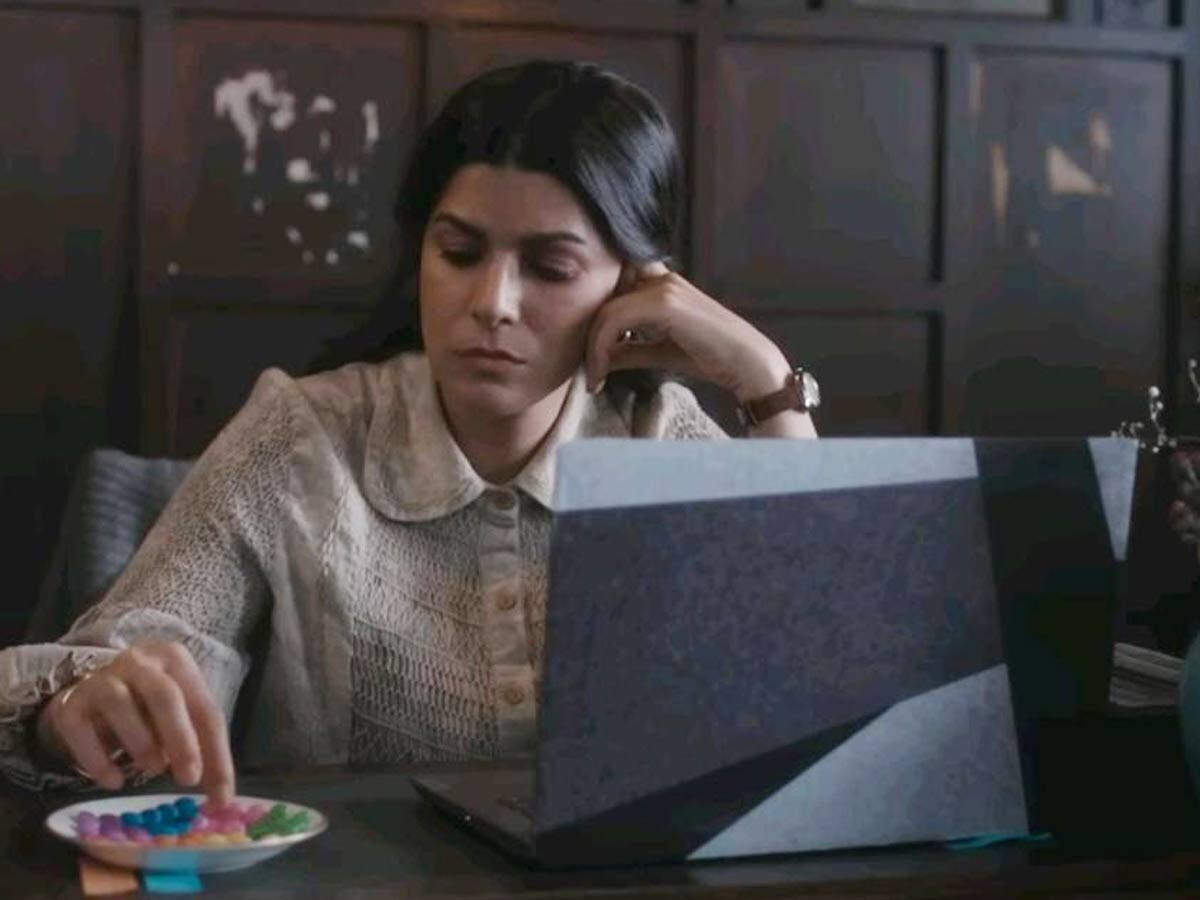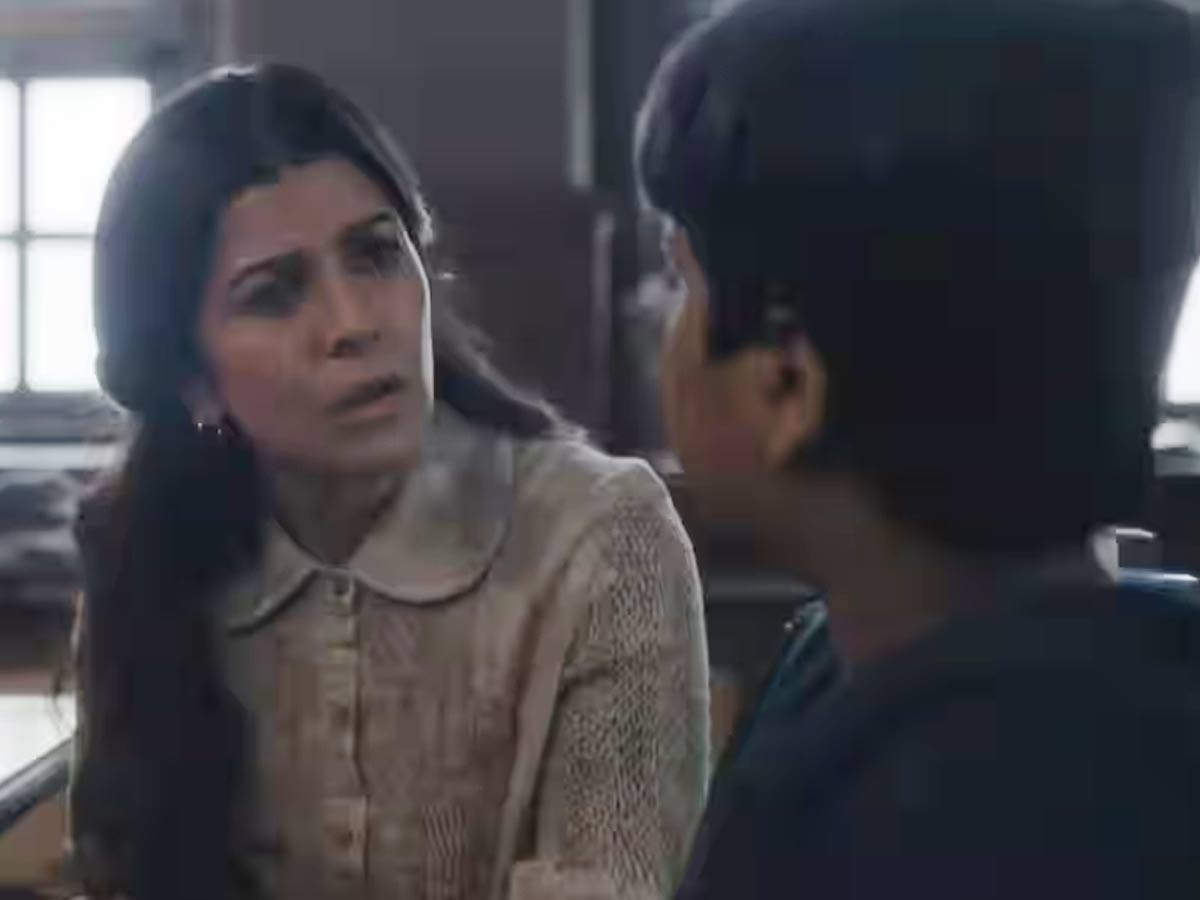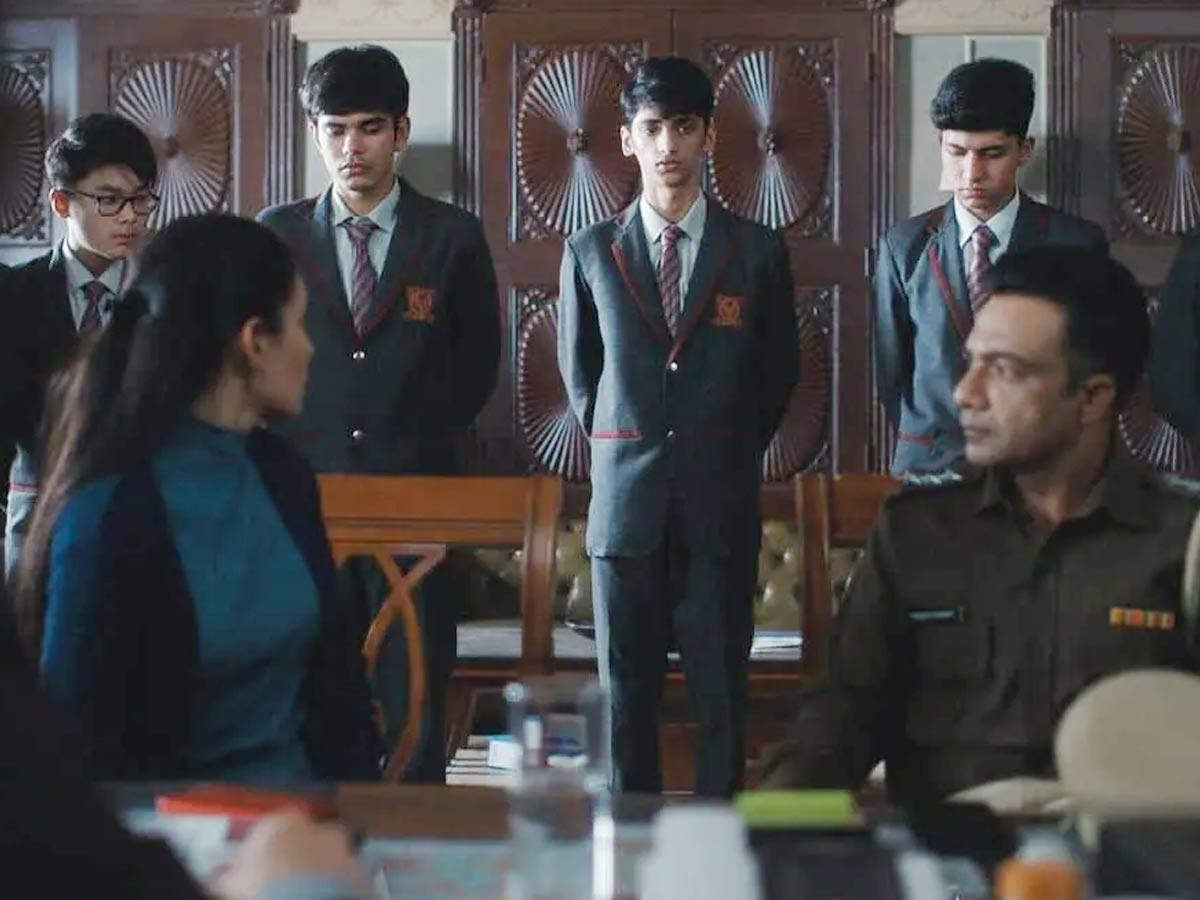Exclusive: Nimrat Kaur on immersing herself in the disturbing reality of School of Lies
There is a darkness in Dalton Town, the fictitious hill station from where a child goes missing in School of Lies, that is sure to make your skin crawl. The series directed by Avinash Arun features an excellent Nimrat Kaur, a perfectly cast Aamir Bashir, and brilliant child actors Vir Pachisia, Varun Roopani, and Aryan Singh, among others. The disappearance of a kid, Shakti (Pachisia), exposes a web of insidious lies, and each strand leads to an unsettling truth.
Working on the show pushed Nimrat Kaur, who earned her spot as one of the most bankable actresses with her roles in The Lunchbox, Dasvi, and more, into some “uncomfortable corners”. In an exclusive interview with Filmfare, the actress opened up about the thriller, her fractured character, and more.
Where were you when you first got the script, and what was your initial reaction to it?
I think it’s been about two years since I first got this script. It was in conversation, and it fizzled out a little bit because of the pandemic. We didn’t know when it was going to be picked up again, but it had been on my mind for two years. I absolutely loved it. It was one of the most unusual scripts I’ve come across. It didn’t want to conform to any genre; it didn’t feel insecure about its pitching. Everything about it was real and spot-on. It was a no-brainer for me.

The characters in the show have a lived-in quality, and it feels like you’ve been playing Nandita for a while. Did you give her a backstory that goes beyond the script?
The writers already had a backstory for me in place. We worked on that together. I chose what I wanted from that story—things that I felt would emotionally get me into the zone—because backstories are great, but it’s all in our heads. Eventually, it has to aid the scenes in the movie or the show; otherwise, it can even be a bedtime story that doesn’t matter. So for me, whatever was pertinent and had an impact or consequence on Nandita’s present-day life in the part of the universe we were showing was very important. There is a layered and difficult arc, and I see why a person like that would want to stay close to children and want to work with them. Perhaps nobody did that for her. It’s one of the two choices fractured people make in life. One is that they become what they suffered, and one is that they make sure nobody else suffers what they did.
What kind of research went into peeling back the layers of your character?
Honestly, it was all in the script for me. It was so well etched out and stitched together. While the larger story is about what happens to the kids and the one child who disappears, that one incident opens a can of worms. For me personally, there was no delving outside that world. I stayed within that world—imagine what would’ve happened and why Nandita was making the choices she was making. I kept it very simple. I just had to make sure that she made sense in that world.
The show tackles themes of abuse and neglect. How important is it to portray these themes in an Indian web series?
I think it’s very important for such subjects to be touched upon. The whole joy of the long format and the ability to have such an abundance of work is that we can portray all parts of life and represent them on the small screen. When it comes to such themes as those that The School of Lies deals with, they better be real and not cringe-worthy. Something like that can easily make you uncomfortable with the wrong intention. Does it make you feel unsettled? Of course it does. Who isn’t unsettled by childhood trauma of the sort that is portrayed in the show? But that representation should be accurate, not for effect or shock value. Sometimes reality is stranger than fiction, and when you’re showing a strange reality, it has to be as close to it as possible. It’s a responsibility. Many people watching this who have been wronged and have had a difficult past don’t want to feel disgraced in any way. They don’t want to feel like it’s a mockery of their pain for entertainment. Sometimes it’s important to be a part of a story because it’s important. I do think that there is a creative responsibility as an actor to commit to projects that deal with something larger and have the potential to make a difference. Let’s say someone goes to therapy because they have things to work on or they apologise to someone they’ve wronged. Art does that—books and movies make you make life-changing choices sometimes, and they affect you deeply. It’s a good place to be if you have represented something accurately.

How challenging was it to engage with the show’s disturbing reality?
In the moment that you’re enacting the scene? A hundred percent! You almost want it to get over you because it pushes you into uncomfortable corners. Do I take it home? Never. I have resolved not to do that, and by the end of the day, it will work. The only thing that disturbs me, and I can’t shrug it off, is when I haven’t had a productive day at work. Even if it is a difficult scene emotionally, if I haven’t been able to do justice to it, that’s what disturbs me. If the environment isn’t nourishing or if I can’t do my best, that’s what bothers me. Otherwise, it’s very fulfilling to even go through a hard day at work. If they are done well, you can come back home and go to bed happy.
There is a scene where Nandita has her first outburst with her father. What went down behind the scenes?
I didn’t overthink it. I had a rough idea of how a person like that would feel. It’s not something that I have experienced. But it wasn’t very hard to imagine someone like that. It’s a very complex relationship. She is his primary carer. It’s as if she is looking after a child. He has nowhere to go. She has a lot of resentment because he didn’t stand up for her when she was a child and when she needed to be looked after. Carrying that resentment with that sense of responsibility and what that does to a person. I had to keep all of that in mind while doing the scene.
Is there a trick to delivering restrained performances that don’t feel over the top?
There are different kinds of problems that bring out these behavioural patterns in people. So not really. I’m just someone who reads scenes many times. For yourself to behave lifelike and feel what the character is feeling, you have to make that situation as real as possible and play it out. And then hope that on that day you’ll be able to deliver, because that’s a very different beast. You never know how you’re going to feel. Sometimes you have to work against circumstances and your inner mood.

What was your experience working with Avinash Arun?
The best thing about working with Avinash is that he’s such a free-flowing person. He won’t restrict you to anything. He’s like water. He knows exactly what he’s doing. He directs with an editing mindset, and that really helps because then there’s no lack of clarity. He is also so loving and sensitive. He really loves his actors, which is rare. I have seen him become different people with different actors; he moulds himself, and he’s very aware of that being his strength. You don’t even realise someone is there, but you are being led. The aftertaste of a project like that is something you have forever.
How easy or difficult is it to work with children?
Most of my scenes were with an actor called Varun, who plays Vikram. He’s extremely impressive, so ahead of his time, and so up-to-date with everything, including world cinema and music. He made impossibly amazing artistic choices. I thought I’d have to lead, but he did not need any of my help at all. He had a level of comfort. And the younger kids were so cute, and I just had to stay focused and not get distracted. They were so innocent. I loved my time with them.
You have picked some diverse roles, from Homeland to Dasvi; how intentional are you with the projects you do?
I love to keep doing different things. There’s no science to it. You just move from job to job, hoping you get to do different things. Sometimes I get attracted to a character for the world they are in; sometimes it’s the character itself; and sometimes it’s both. As long as it’s something different. So be it Homeland, Test Case, Airlift, Lunchbox, or Foundation, which will come out in July, they’re all different worlds. It’s a spark you feel—I want to do this. And I want to have a great time at the end of the day.
The Lunchbox, which also starred Irrfan Khan, is one of your most memorable roles. Is there a takeaway from that experience that still stays with you?
While I haven’t shared screen space with him (Irrfan Khan) to take anything away from that, the experience of working on The Lunchbox is a gift that keeps on giving. I shot it over nine days. It was a thirty- to thirty-one-day project. It was a really small film that had a very big destiny. It’s a blessing that I continue to get love for, and I know I will for a very long time.
SEE ALSO: From The Night Manager 2 to Scoop, Upcoming Hindi Web Series Releasing in June 2023
For all the latest Entertainment News Click Here
For the latest news and updates, follow us on Google News.

